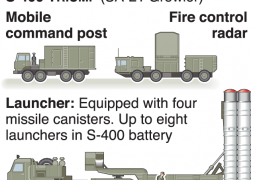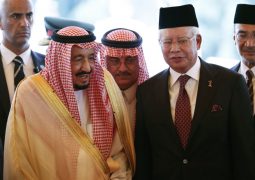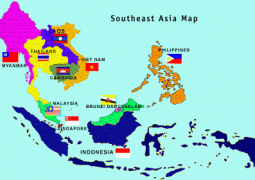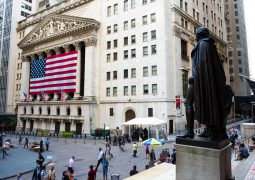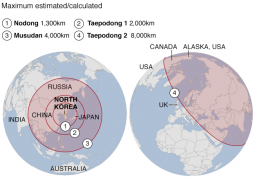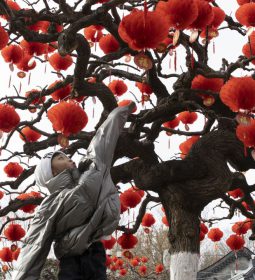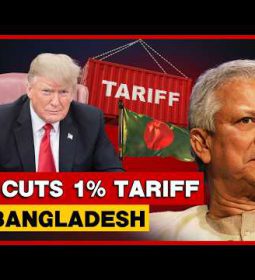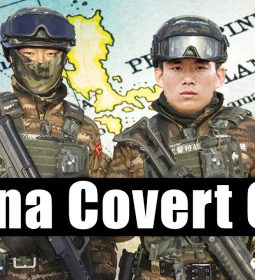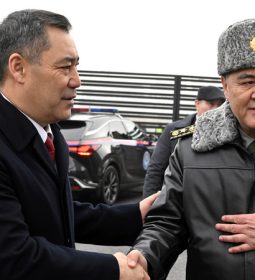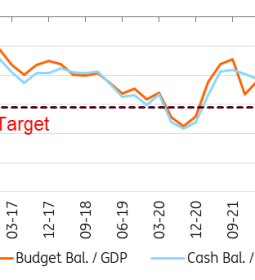Yet another Middle East country in turmoil: This time Iraq
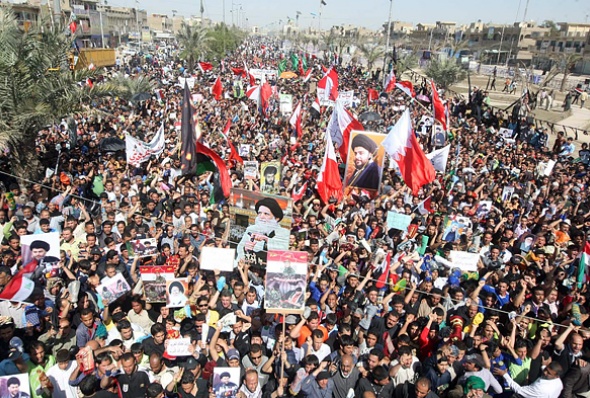
More than a dozen killed in Karbala as Iraqi forces open fire
But officials in the holy city deny any demonstration-related deaths and say most of the wounded are security forces.
Iraq‘s security forces fired live ammunition early on Tuesday to disperse an anti-government demonstration in the southern holy city of Karbala, killing at least 14 protesters and wounding hundreds of others, medical sources said.
But Karbala’s police chief denied in a statement that any protesters had been killed and said only one person died in an unrelated criminal incident, calling footage of security forces shooting at protesters on social media fabricated and designed to “incite the street”.
Security officials said the violence happened in Karbala’s Education Square, about two kilometres (1.2 miles) from the Imam Hussain Shrine, where demonstrators set up tents for their sit-in.
A witness said hundreds of protesters were in the encampment when live rounds were fired towards them from a passing car.
Then masked gunmen in black plainclothes arrived and started shooting at the demonstrators, the witness said, speaking on condition of anonymity, fearing for his safety. Tents caught fire, igniting a blaze, he added.
Karbala’s Governor Nassif al-Khattabi denied reports about Iraqi protester deaths. “Security forces have exercised utmost restraint,” he said.
The governor accused protesters of “carrying weapons and an internationally prohibited bomb”, without elaborating.
Karbala Police Chief Ahmed Zweini accused protesters of hurling petrol-bombs at security forces.
Iraq’s High Commission for Human Rights, meanwhile, revised an earlier statement in which it said 18 people had been killed, saying only one demonstrator died and 192 others were injured.
Later on Tuesday, a Reuters news agency correspondent saw a convoy of anti-riot police driving towards Baghdad’s central Tahrir Square where protesters, now joined by students, gathered for a fifth day.
The renewed protests in Iraq came weeks after an earlier wave of rallies broke out as a result of widespread anger at high-level corruption, mass unemployment and poor public services. More than 250 people have been killed in this month’s demonstrations in the capital Baghdad and several southern cities.
Many Iraqis blame a political elite they say is subservient to one or another of Baghdad’s two main allies, the United States and Iran. They say these powers use Iraq as a proxy to pursue their struggle for regional influence, without concern for the needs of ordinary people.
The ongoing turmoil has broken nearly two years of relative stability in Iraq, which has endured the 2003 United States-led invasion and protracted fighting, including against Islamic State of Iraq and the Levant (ISIL or ISIS).
The overnight violence left at least 14 people dead and 865 others wounded, medical and security sources said.
One source told Al Jazeera the death toll on Tuesday stood at 20. Three protesters also died in the southern city of Nassiriya from wounds sustained in earlier protests.
Karbala’s health department chief, however, said 122 people were injured, including 66 members of the security forces.
Ali al-Nashmi, an Iraqi academic at Al-Mustansiriyah University, told Al Jazeera the demonstrations were unlikely to die down, leaving the government with little choice but to eventually step down.
“Iraqis’ main demands are [for the government] to address the issue of corruption, to step down, and for a new election to be held,” al-Nashmi said.
‘No to the curfew’
In Baghdad, anti-government demonstrators defied a curfew imposed by the authorities from midnight until 6am local time. Scores of protesters occupied central Tahrir Square while others tried to cross a bridge leading to the heavily fortified Green Zone, where government offices and the US embassy are
“No to the curfew, we will remain here. The curfew is one of their [the government] filthy games,” a young protester, who asked to remain anonymous for security reasons, told Al Jazeera.
According to Dlawer Ala’aldeen, a Middle East expert and founder of the Middle East Research Institute, the government’s curfew declaration aims to keep protesters in their homes so demonstrations die down.
“The curfew is a method by the government to hurry out its plans by evacuating the main areas and squares from the demonstrators,” Ala’aldeen told Al Jazeera.
Earlier on Monday, at least two anti-government protesters were killed and more than 100 wounded in clashes with security forces in Baghdad as thousands of students joined the demonstration in defiance of a government order and tear gas fired by security forces.
Iraqi soldiers were seen beating high school students with batons in two Baghdad districts. A defence ministry statement condemned the incident and said the troops did not represent the army as a whole. It did not say if they would be punished.
Ongoing turmoil
An Iraqi government committee investigating the first wave of demonstrations, which took place during the first week of October, found 149 civilians were killed because security forces used excessive force and live-fire to quell protests.
Its report, which said more than 70 percent of the deaths were caused by shots to the head or chest, held senior military commanders responsible but stopped short of blaming the prime minister and other top officials, saying there had been no order to shoot.
Meanwhile, Shia religious leader Muqtada al-Sadr on Monday called on Prime Minister Adel Abdul Mahdi to announce early parliamentary elections overseen by the United Nations and without the participation of existing political parties.
Al-Sadr’s bloc, which came first in a 2018 election and helped bring the prime minister’s fragile coalition government to power, said on Saturday it was going into opposition until the demands of protesters were met.
On Monday, Iraq’s parliament voted to dissolve the provincial councils, cancel the extra privileges for top officials, and summon Abdul Mahdi for questioning.
Abdul Mahdi has proposed a laundry list of reforms, including hiring drives, increased pensions and promises to root out corruption.
President Barham Salih has also held discussions with the UN on electoral reform and amendments to the 2005 constitution, but the moves have not appeased protesters.
In solidarity with demonstrators, four MPs resigned late on Sunday.
- Previous Dubai facing ‘economic disaster’ from overbuilding
- Next Yet another Middle East country it trouble: this time Lebanon with millions marching across all the country




